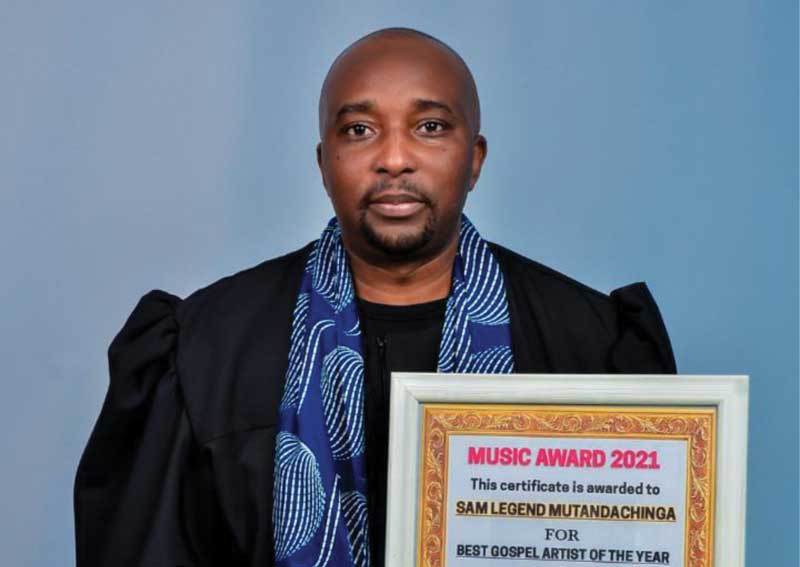
HE is an economics graduate from the University of Zimbabwe and currently a stockbroker on the Johannesburg Stock Exchange.
It does not end there for the fast-rising talented mbira gospel musician.
Despite initially facing resistance in the gospel music industry, Sam ‘Legend’ Mutandachinga’s unique musical sound that is aimed at amplifying the innate potentials of traditional instruments on the local gospel music landscape, is gaining traction among gospel music fans.
In one year, he has bagged four awards.
His negative experience in gospel music is not an isolated case.
Even during the gospel genre’s early days when hand-clapping and foot-stomping was the rhythmic accompaniment, the introduction of flutes and drums harp or lyre in the eighth century was also despised.
In the thirteenth century, medieval theologians such as Thomas Aquinas resisted the introduction of musical instruments, claiming that they move the soul more to pleasure than create a good internal disposition.
Locally, the traditional instruments such as the African drum (ngoma) and rattles (hosho) are renowned.
- Education 5.0: Blessing or curse for UZ students?
- UZ in fees shocker
- Deliver free education, govt told
- Police break up UZ protests
Keep Reading
However, it is the (mbira) thumb piano that has been lagging behind in the modernisation and diversification of traditional instruments in enhancing worship services.
Mutandachinga highlighted the challenges mbira gospel, as a new genre in Zimbabwe, faces.
“Mbira has been in abeyance as far as we have lived in gospel music, although it has been sometimes used as an accompanying instrument,” he said.
“I took the challenge of using mbira as the main instrument in my gospel music. The tag for mbira has always been for ancestral worship.”
Despite the fact that many churches and gospel artistes have shunned it, Sam is determined to have the negative tag on mbira instrument removed.
Everyone is free to use mbira in gospel just as any other instrument, he says.
“I also took the risk of the backlash that would come from family, church members and fellow Christians who still hold this tag on mbira, I said if playing mbira is not a sin before God then l will do it,” said Mutandachinga.
Since the mbira is mostly associated with the Shona language, he has gone a step further and is using other local languages to break the ugly face of tribalism which was also present in gospel circles.
“I have so far done a mix of Ndebele and Shona, and a full Ndebele only,” he said.
“Mbira is a Zimbabwean instrument, anyone should feel free to use it, the world celebrates it as Zimbabwean, lets embrace it as such, and songs have been well received on Radio stations.”
He is also playing his part in community Initiatives.
“I am using drama to promote the use of mbira in churches and gospel music and used famous a socialite,” said the musician.
"I have also done videos on two of the songs which ZBC and DSTV Trace gospel channel have played."
He has registered an NPO called Mbira Praise and Worship to can promote the use of Mbira in Gospel music.










